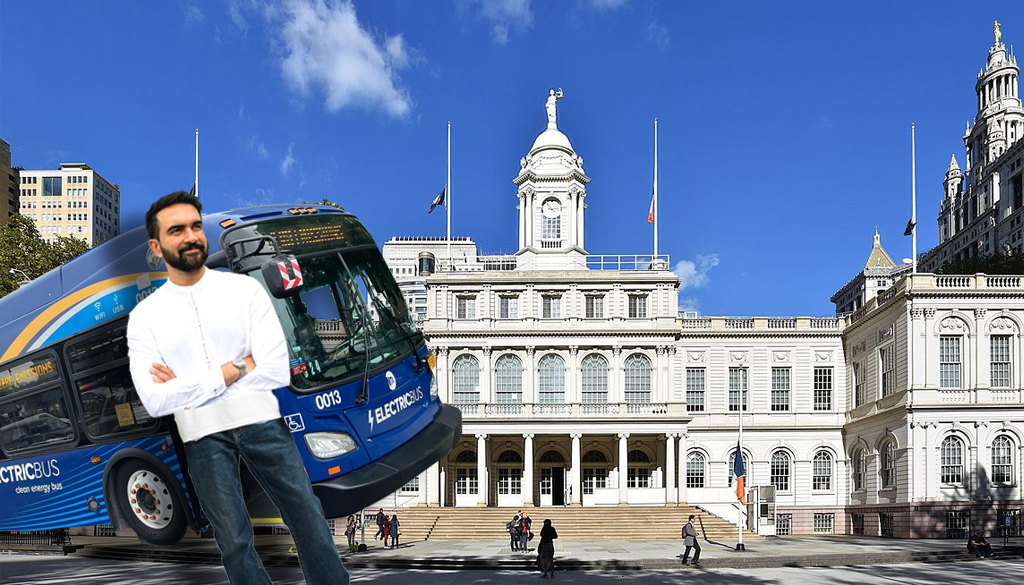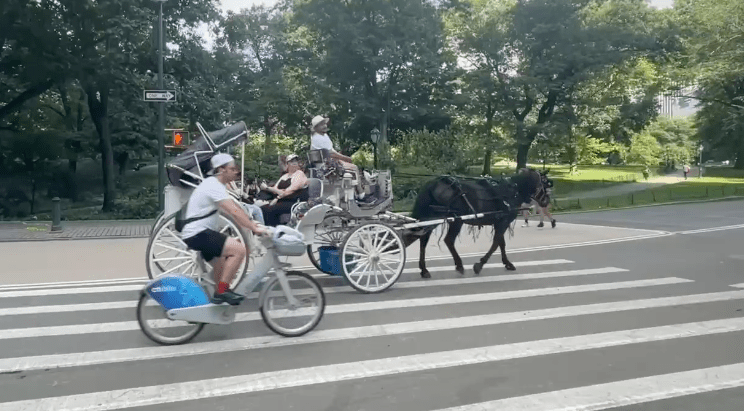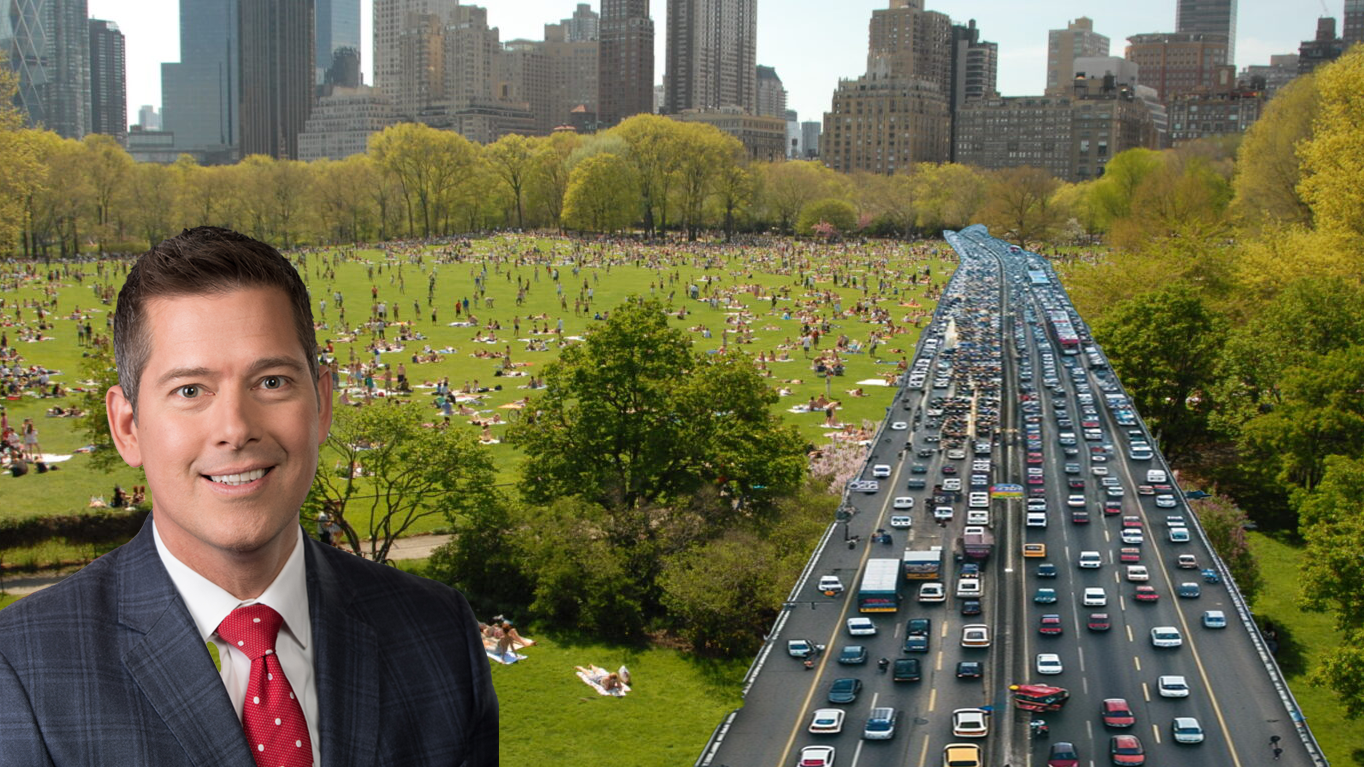
Gene Russianoff, Senior Attorney for the Straphangers Campaign, has been New York City's leading transit advocate for decades. Streetsblog recently spoke with Gene about the MTA's impending fiscal crises and other transit issues.
SB: How real is this predicted fiscal crises? How does it compare to past crises?
GR: Start with the numbers. They have huge problems with their operating and capital budgets (download pdf). The MTA has an operating budget of roughly $9 billion. Three years in a row they have huge projected operating deficits: $800 million in 2008, $1.4 billion in 2009 and $1.8 billion in 2010. This is the deficit after state and city subsidies. The reason that the deficit is so big is because the interest is coming due on the $32 billion the MTA has borrowed over the last 25 years. By 2010 about 20% of the MTA budget will be debt service, which most experts believe is the upper limit of what public authorities can manage. It's not possible to raise the fare enough for three years in a row, even if they callously wanted to put all of the burden on the riding public. Former MTA director Katie Lapp used to joke that they couldn't use the credit card anymore.
SB: Is this the day of reckoning?
GR: The problem is how to pay the current bills and still do capital plans for the future. The thing that's gotten them through the past couple years is this unprecedented windfall from the sky-high real estate market and the MTA's mortgage recording tax. In 2006 they had a $1 billion surplus. This has masked deep problems and made it hard to raise fares. The public doesn't understand the deficit. They think the MTA is raking in the dough through the fare box. But the surplus is coming from these taxes, not the fare box. What's not understood by the public is that it's a roller coaster. If the economy is doing poorly then the subsidies from taxes go down.

SB: Is the MTA's top leadership more worried than it typically is before a fiscal crisis?
GR: The new leadership wants to deliver a good product and they are ambitious. They resent being saddled with the bill for someone else's expenditure. It makes it hard for them to balance their budget and meet new needs. They are concerned about their ability to do that.
SB: The city is perceived as being very flush right now. How does the mayor escape a bigger responsibility for the MTA budget problems?
GR: The average person thinks when it comes to subways, the mayor is the Sun King who decides what MetroCards cost. But mayors don't feel responsible. The mayor has only 4 of 21 votes on the MTA board. On the capital side, Koch contributed $200 million a year to the MTA, Dinkins and Giuliani reduced it to $100 million a year, and Bloomberg cut it to $70 million. The city contributes only about 3% of the capital budget and 3% to the operating budget.
SB: Can congestion pricing help?
GR: We wouldn't support congestion pricing if its only function was to reduce congestion. That's an important goal. But it really needs to be a source of revenue for better transit. You can't relieve congestion without providing a decent transportation alternative -- a safe, reliable transit system. There should be more express buses and BRT. The city should have been building subways decades ago like our global competitors were. In trying to win popular support for congestion pricing you have to tell people the money is going to improve transit, especially bus service. London improved bus service with congestion pricing. The fee paid for new buses and the reduced congestion resulted in faster, better bus service. They made travel easier for the vast majority of people traveling in the central business district.
SB: You've put a lot of work into improving bus service. Are you worried about cuts to the bus system since it is more flexible and has a higher operating cost per passenger?
GR: I'm not especially worried about cuts to buses. Bus service has grown 50% since free transfers between bus and subway. There are 2.5 million bus riders, about half of subway ridership. It's hard to cut a growing service. The new president of the Transit Authority, Howard Roberts, used to head the bus division, and the head of the whole MTA, Lee Sander, was head of the Bronx and Manhattan buses. There is real interest in the top managers there in improving bus service. I'm hopeful there will be dramatic improvements.
SB: Does big business have a big role to play in the upcoming fiscal crises?
GR: I give good marks to the business community. When the transit system was at death's door, they were there. There is a reason we spent $53 billion in 25 years. There is a long history of business support for transit. I've worked closely with the Partnership for New York City over the years. They have been willing to sustain major taxes, because they know they need to be part of the solution.
SB: So what can be done to solve the fiscal crisis?
GR: There is a limited repertoire of things they can do. In 2005, MTA chair Peter Kalikow recommended across-the-board increases in the taxes that support the MTA to the Republican tax-cutting governor who was his boss. It's logical that the current crew at the MTA would do the same.
SB: You actually sound pretty optimistic that this can be worked out.
GR: There is every reason to despair. But I've been in this exact situation several times before, and by some miracle -- not always the prettiest miracle -- like borrowing all of this money, we came through. I've come to believe that people really care. Transit is what makes the city move. The net result is that the political system just can't ignore the subways. We've had five or six capital programs since 1982 and things have gotten better. It would be a total bummer if it was still completely graffiti-covered and those 35 watt dim light bulbs were still down there. But crime is down 75%, the fleet is all new or rehabilitated, and 40% of stations fixed. I'm not supposed to say that the MTA is doing well [laughs] but if you were around in the 50s, 60s and 70s, you would have seen a continual downhill slide. So there's reason for hope.





